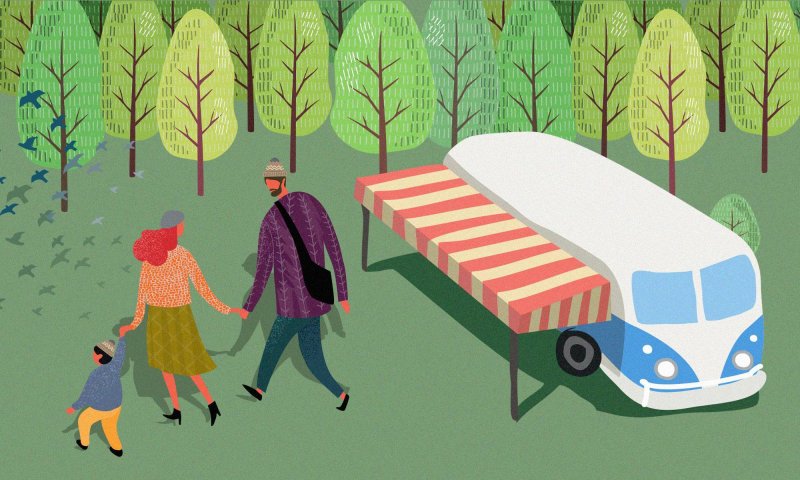Near the Amazon rainforests, specifically in the Brazilian city of Lençóis, a Syrian couple – Arwa and Aya – along with their child Ward, have decided to launch themselves in the arms of nature, escaping the urban lifestyle they previously lived in Syria, Dubai and Turkey.
34 year-old Arwa al-Fahad an architect and engineer tells Raseef22: "Living near the Amazon forests instills in us the feeling that we as humans are blemishes, we are tiny creatures in the cycle of the universe. Here a person can get rid of their selfishness and human arrogance which became addicted to the consumerist lifestyle and which has now metamorphosed into a huge threatening giant, reducing our lives as humans only to eating, drinking, sleeping and consuming."
Nature by contrast, according to Arwa, "gives you a different feeling. Even our reactions as humans become more disposed to positivity because of nature."
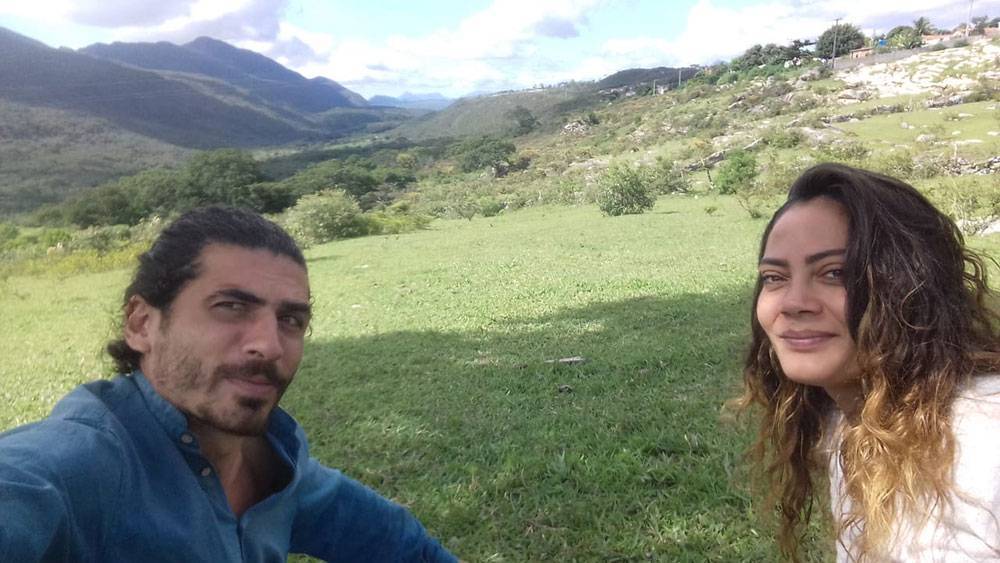
Living amongst nature, in Arwa’s view, is a "healthy choice to escape the exhausting consumer life, in which a person is always in a race with time, in a continuous battle with life, for no purposes."
This Syrian family has returned to old modes of living which most settled residents in urbania have long lost, notably the system of barter. According to Arwa, the inhabitants of the place they are now living in survive on a system of barter and exchange, which he says "dominates livelihood," adding that "the people who live here are Brazilians as well as foreigners who came to live alongside the native population."
Even garbage and waste are not thrown away, with the community always seeking ways to utilize them. Arwa explains that waste is divided into three categories: food and its remains, these are placed in a hole half a meter deep, above which are placed dry leaves topped with soil – after decomposing the blended soil is used to grow plants; the second category is plastics, which are assembled in a pot which can be used later in construction; and the third is glass which is used in many things.
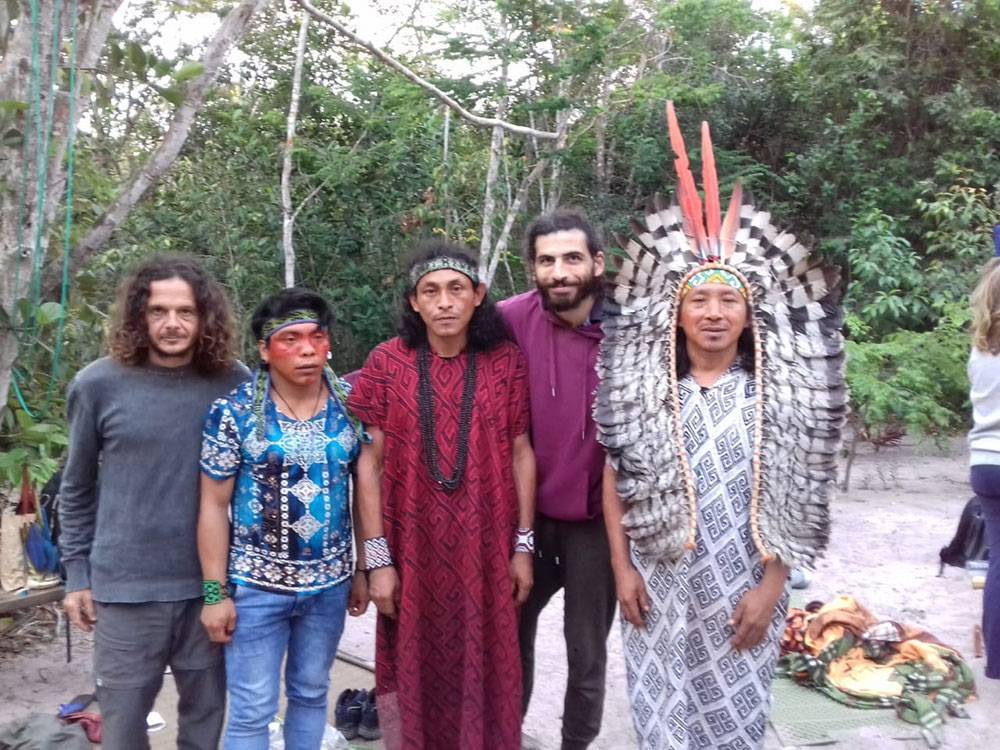
Arwa also spoke of the encroachment and attacks on the Amazon rainforests, adding that the reasons for the recent "contrived" forest fires was to erase the traces of nature and to reinforce the consumer lifestyle; indeed, in these regions it is well-known that fires were intentionally precipitated in order to make way for the construction of factories.
A New Experience
Indeed, Arwa was able to benefit from living amongst nature and in the forests to increase his experience and knowledge in the field of construction. He says: "I was able to deploy my experience in engineering in another way. Practically speaking, I used to work in engineering in Syria and Dubai, in such fields as modern engineering in high-rise buildings, I experienced the pinnacle of consumer culture in Dubai, and saw how illusory towers were built. Here however, I own different tools to work with trees, mud, timber and limestone: these are substances occurring in nature and a person can feel their direct effect on them: for buildings were created for living beings, and thus the building should also be alive to give you a feeling of life, such as the Damascene homes built out of stones and natural substances."
The Amazon Jungle: this is how far Arabs are willing to go to escape the harsh reality in their homelands. Fatima and Aya settled in Lençóis, Brazil and recount their newfound freedom and happiness.
Arwa built houses out of mud. On this he says: "this type of building and its details are not known in the Arab world currently, but the technique used to be widespread." From his point of view, a sustainable building is the one that is closest and has the most affinity with human beings, for it is durable and lasts so long as the human does, leaving the latter "weighing lightly on the earth." He adds: "As humans, we are forced to do this, because feeling [in touch with nature] reduces selfishness, and so you become a human who does not want to cause harm."

Ideal Place
Aya shares Arwa's life and his passion for living in nature, whether through her own lifestyle or by her work as a geological engineer; indeed, she believes that living as a family and raising children in such places is a positive thing and preferable to urban life.
Aya tells Raseef22: "Establishing a family in nature is better than the cities because there is none of the pollution which is heavily prevalent in urban life; we are bombarded with information that cannot be absorbed, and this includes false information that can come from social customs and traditions. The abundance of information does have a positive aspect, such as what you need to know if a child gets sick, but at the same time we receive false information such as how you should raise your child."
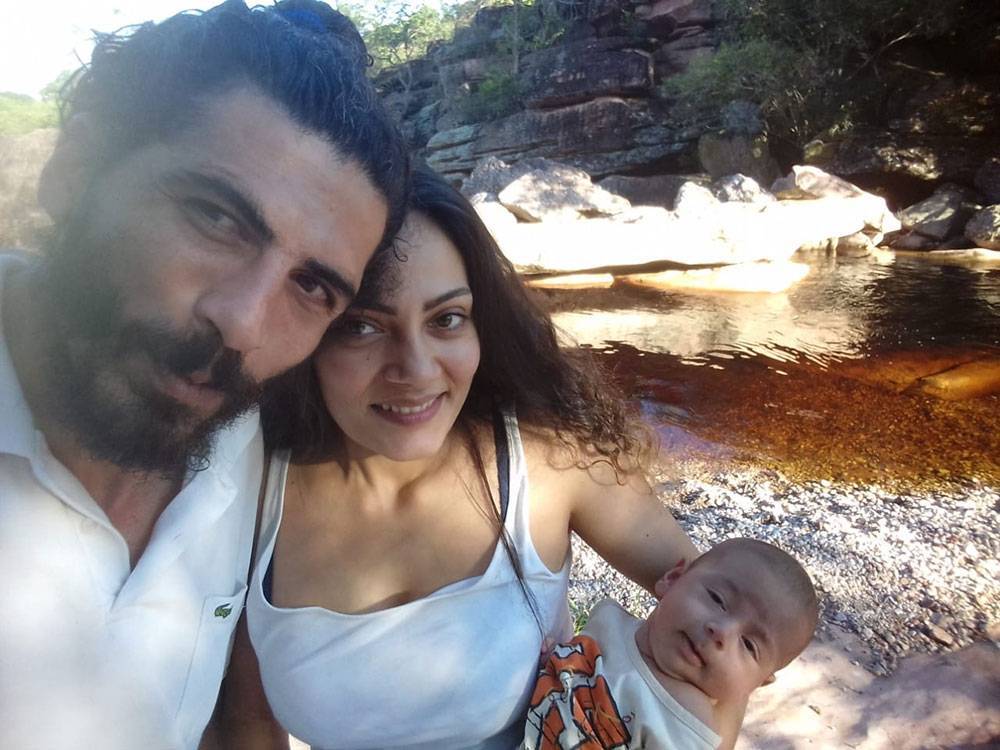
In Aya's opinion, "When you have no fear of nature, you conquer all fear" adding: "certain insects scare me but they are rare. Snakes and animals understand children much better than humans; we find a child being happy when they are playing with birds and monkeys. Furthermore, the presence of natural components and ingredients are healthier here for children, because within them lies life, unlike playing with plastic toys as is prevalent in urban life. Nature also increases the sense of wonder in children."
Aya adds that the ideal place for women in this age of consumerism, convenience and speed lies in nature, noting that there are many mistakes in how urban life teaches you how to raise your children, and mistakes also abound regarding the details of a woman's life, especially in Arab societies.
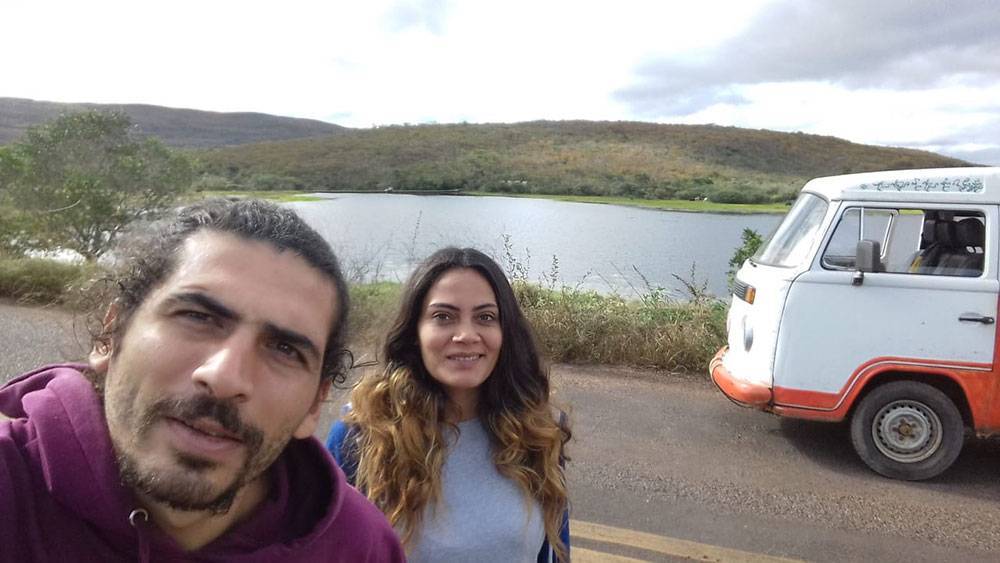
Geological Tourism
As an engineer specializing in Geology, Aya explains the background of the region where she now resides, saying: "The nature here goes back more than 200 million years, when [Latin America] split from Africa producing a large fissure, which gave rise to these mountains in Brazil. The proof of this is that the same nature exists in Africa, and that is very important for my work and geological studies."
According to Aya, geological tourism is a new type of tourism – though she believes that living and experimenting for a longer period of time is better. Nonetheless, ecological tourism does hold benefits for many, Aya points out, by stating: "geological tourism preserves natural areas and brings attention to them, and helps people to reach and connect to the environment and become better acquainted with it in a less costly and damaging way. Furthermore, it also benefits local communities, helping to rejuvenate them and bring to the attention of people the importance of the areas they live in."
As a result of the expertise that she gained in geological tourism, Aya says that she is currently working on several projects in Syria, which she hopes will see the light of day in the future.
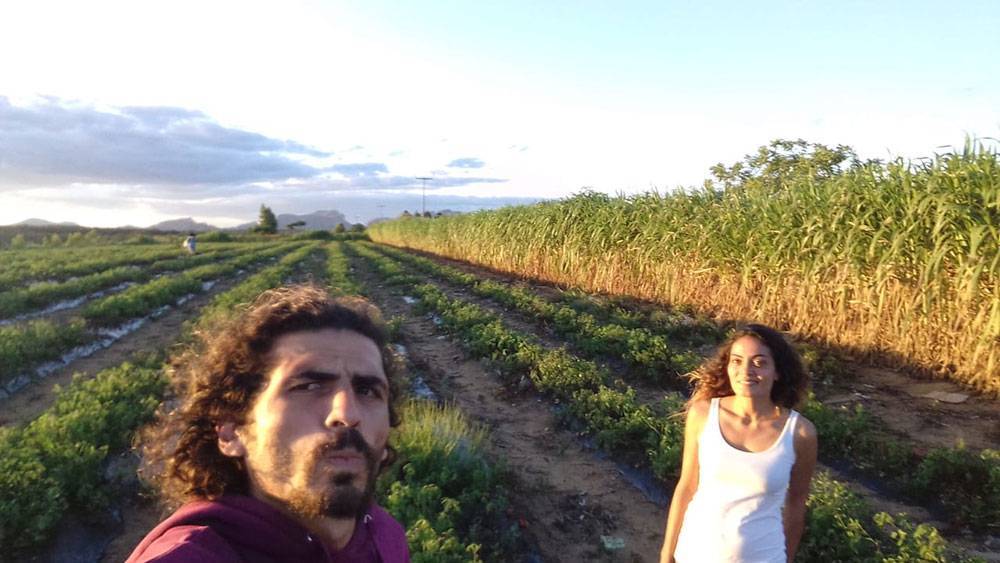
Love and Peace
32-year old Fatima from Morocco says that her life was turned upside down when she decided to end her consumerist and urban life in Morocco and head to Brazil to live in the Amazon rainforests.
Fatima left Morocco seven years ago, at the time feeling that her life was nothing more than continuous pointless work; she had two jobs in order to be able to pay her rent and afford the high living costs in Morocco. After her mother passed away, Fatima fell in depression and isolation, before eventually deciding to run away from her country and live in nature, after her friend Muna who lived in the forest told her of her own experience and advised Fatima to change her lifestyle.
"I felt that my body and soul were fading away and disintegrating as a result of the consumer lifestyle of the city, while in Brazil I am living in safety, calm and peace of mind. I threw away my psychiatric medication in the bin once and for all, and began to live a peaceful life in the forests with people who resembled me and did not discriminate between one person and another because of gender, religion or race" says Fatima.
Fatima says that from the moment she arrived in Brazil's forests, she has not had to "abide by a closed lifestyle and dress code as was the case in Morocco; here I lived in freedom and saw that people did not care about my appearance or body and did not comment on my behavior and actions – to the contrary, I experienced values of love and affection through their gentle, kind and humanitarian interactions with me and others."
Fatima concludes: "In this place there are Brazilians, Arabs, Europeans and people of various nationalities, with love, peace and tranquility bringing us together. Indeed, I have never even considered returning to my country – I have spent six years here and will remain in this life until further notice. I am comfortable and acclimatized to my life amongst the trees and animals, and there is no need for money to live amongst nature, and your thoughts are not occupied throughout the day, month and year with things like how to buy food and water as in the consumerist lifestyle of the city. Nature teaches you, tames you and makes you peaceful and loving."
Raseef22 is a not for profit entity. Our focus is on quality journalism. Every contribution to the NasRaseef membership goes directly towards journalism production. We stand independent, not accepting corporate sponsorships, sponsored content or political funding.
Support our mission to keep Raseef22 available to all readers by clicking here!
Interested in writing with us? Check our pitch process here!
